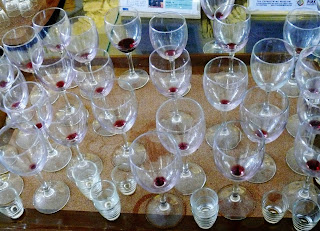We live in a wonderful world but in
recent years our world has been devastated by hurricanes,
earthquakes, floods and droughts. There is no doubt in the world
scientific community that this is the direct results of human
activity and the effects of climate change will become worse in the
future.
From oil spills to overflowing landfills, man’s unsustainable quest to live a better life with little regard for the environment has caused a staggering amount of environmental disasters to be formed. At present, pollution is labeled to be the N°1 killer, affecting more than 100 million worldwide.
Following are shocking photos which capture man-made disasters and their effect on the environment. If these photos don’t inspire you to collect trash when you see it, it’s time to wake up.
The photos shown above expose the truth of
what is happening across the globe. If you think your plastic isn't ending
up in nature, think again. Much of it ends up there without you
realizing, from flying out of your garbage can, the garbage truck, or
the landfill. Animals are constantly being suffocated, starved, or
weighed down due to ingesting plastics. Everything that we can do to
reduce our plastic usage as individuals counts.
Climate change could destroy the word
where we live in, there is still time for us to save our word, there
are many things that we can be doing, things that you and your family
can do together.
You can REDUCE the amount of waste that
you produce, and we you can, REUSE it,
You can RECYCLE many items in your
home, make sure you put the trash in the correct bins!
You can follow the fb page of Rob Greenfield, he was a physical representation of the american
trash output for 30 days.
Check out his video to see how and why he did
it and head to www.trashisfortossers.com
to learn tips and tricks on how to reduce your everyday trash output
in ways that are simple, cost effective. If you are also interested in being a
part of the solution to food waste you can find important information here.
Lastly, on Sunday (19/01/2017) will take place the Eco Teaching Event, don't miss the opportunity to learn more about this topic.
Be part of the solution!













